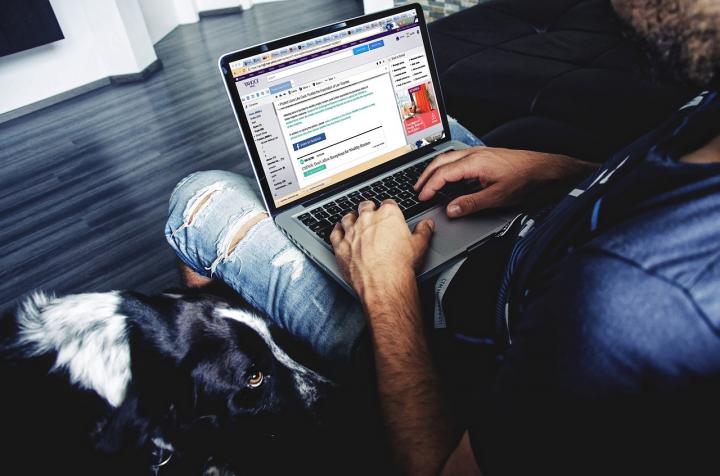
For years, experts have questioned whether spending time on social media is helpful or hurtful to mental health. I use social media (i.e., Linkedin, Facebook, and Twitter) for my business, to stay engaged with followers, share pertinent information, and form new connections. I also use a personal Facebook account to stay connected with friends and family from across the world. After 15 years of living in 6 different cities in Canada and the USA, it is easiest to post pertinent updates on social media rather than connect with individuals on a regular basis.
However, the downsides of social media are becoming more apparent and many of us can relate. Scrolling through social media mindlessly can be a major time suck. I recently installed the app Quality Time on my phone and was disgusted with how many times I checked my phone or spent time on social media during the day. Having this awareness has helped me pare down on social media usage, or at the very least, use my time more efficiently.
Social media use also leads to comparison, which can cultivate feelings of envy and depression. It’s no secret that most of us save our best pictures and favorite features for our social media posts, while leaving our dull or downtrodden moments hidden away. This gives others the false sense that our lives are amazing or even glamorous! People frequently say to me “I’m so jealous of your life and all of the travel you get to do”, but that’s because they don’t see the hours spent packing/prepping, sitting in airports, or spending time alone in hotel rooms. Trust me – it’s not glamorous.
There is more research coming out to explain the positives and pitfalls of social media use, which will hopefully guide our decisions when it comes to if and how we engage with others online. The Merck Animal Health Veterinary Wellbeing Survey recently shared that veterinarians using social media for > 1 hour per day have poorer mental health and wellbeing as assessed by validated scoring systems. Conversely, other studies investigating social media use among young adults and the general adult population have found conflicting results when it comes to the duration of social media use and mental health. Which is why recent studies have begun to investigate the subtler nuances of how people are engaging on social media and how that impacts wellbeing.
For example, a recent study compared active social media use such as messaging a friend or commenting in a group to passive social media use including scrolling through and liking posts. Results from more than 700 adults showed that passive social media use was associated with a 33% increase in depressive symptoms, whereas active social media used was associated with a 15% decrease in depressive symptoms. So, whether you are just sitting and scrolling through posts rather than reading, commenting, and engaging with other users appears to play a big role in the mental health effects.
Rather than try to manage the way in which they use social media, some people have chosen to forego the use of social media altogether. I have several friends and family members who have deleted their Facebook accounts to break free from the time suck / comparison trap of social media, sometimes on the advice of a mental health provider. Studies seem to support this: in Denmark, people who took a week-long break from Facebook had improved life satisfaction and positive emotions in comparison to those who continued using Facebook. These effects were greater for heavy Facebook users and those who used Facebook passively. Perhaps a social media hiatus (or vacation) is something each of us could consider to improve our mental health?
I am not opposed to social media and am grateful to have it for the professional and personal uses I stated above. However, I do think the way in which it is used has the biggest impact on our mental health and wellbeing. As such, I would urge anyone using Facebook, Linkedin, and other social media tools to consider the following five strategies to foster active use:
Finally, if you have not done the exercise of logging your phone or social media app time, I urge you to become aware of your usage by installing a time monitoring app such as Quality Time, Offtime, or Moment. Awareness is the first step in realizing that a change is needed to foster health and wellbeing.
Marie K. Holowaychuk, DVM, DACVECC is a small animal emergency and critical care specialist and certified yoga and meditation teacher with an invested interest in the health and well-being of veterinary professionals. Starting in 2019, Marie will be offering personalized wellness sessions to those who work in the veterinary profession. To sign up for newsletters containing information regarding these sessions, please click here. More information about Marie and her other offerings can be found at www.criticalcarevet.ca.